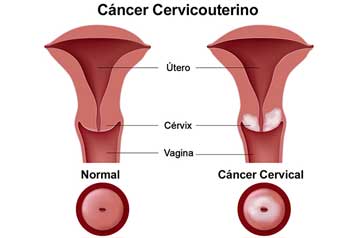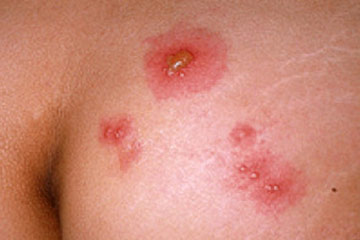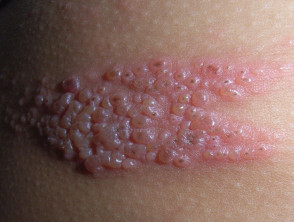Cervical Cancer Screening Tests
How can I prevent cervical cancer?
You can prevent cervical cancer with regular screening tests, like the Pap test. The Pap test is a screening test for cervical cancer. It looks for abnormal cells on your cervix that could turn into cancer over time. That way, problems can be found and treated before they ever turn into cancer. A new HPV test can also beused with the Pap test.
Screening tests can find early problems before you get sick. That way, problems can be found and removed before they ever become cancer.
Cervical cancer often does not cause symptoms until it is advanced. So it is important to get screened even when you feel healthy
You took the first step to prevent cervical cancer by getting a Pap test. If you’re reading this booklet, you may also have gotten the new HPV test with your Pap. These tests are often done at the same time.
The Pap test
Checks your cervix for abnormal cells that could turn into cervical cancer.
The HPV Test
Checks your cervix for the virus (HPV) that can cause abnormal cells and cervical cancer.
Screening for cervical cancer with both the HPV test and the Pap test is an option for women ages 30 and older.
Use of the HPV test with the Pap test can safely increase screening intervals up to 3 years for women who do not have HPV and have a normal Pap test result even if they have new sexual partners.
Even without the HPV test, women who have several negative Pap tests do not need to have a yearly Pap test.
The HPV test will not tell you if you ever had HPV, but only if you have HPV now.
Why don’t doctors recommend the HPV test as a screening test for younger women and teens?
HPV is very common in women younger than age 30. But it is not useful to test young women for HPV, since most HPV that is found in these women will never cause them health problems. Most young women will fight off HPV within a few years.
HPV is less common in women older than age 30. HPV is also more likely to signal a health problem for these women, who may have had the virus for many years. Doctors may use the HPV test to tell if these women are at higher risk for cervical cancer and if they need to be screened more often.
Regular Pap tests (alone) are still good screening tests for cervical cancer—for both younger and older women.
What Does My Pap Test Result Mean?What Does My HPV Test Result Mean?
Source
Cervical cancer screening with the HPV test and the Pap test in women ages 30 and older
Centers for Disease Control and Prevention
Related Topics
-
Human Papillomavirus
-
Human Papillomavirus Vaccines: Questions and Answers
-
Human Papilloma Virus Signs and Symptoms
-
Human Papillomavirus Screening
-
Cervical Cancer Screening Tests
-
What Does My Pap Test Result Mean?
-
What Does My HPV Test Result Mean?
-
HPV Test FDA's Approval
-
Human Papillomavirus Treatment
-
Human Papillomavirus Prevention
-
Human Papillomavirus and Men
-
HPV and Men
-
Human Papillomavirus Infection Treatment
-
Human Papillomavirus and Genital Warts
-
Human Papillomavirus Associated Cancers
United States, 2004–2008 -
Preventing Cervical Cancer Worldwide (PDF document)






